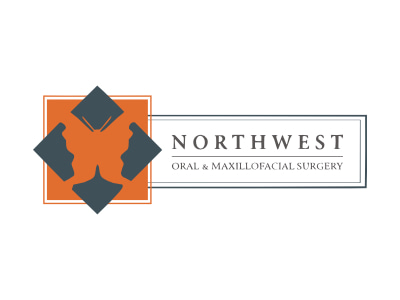- Categories :
- More
Unmasking the Mystery of Jaw Pain: Causes and Treatment Options

The reality is that pain in your jaw or emanating from anywhere in your body may really be “just in your head” but those signals being sent to your brain are very real and very important.
“Pain is all in your head—but by no means are you making it up. One of the most damaging preconceptions in our culture is that pain must not be real. It’s as real as stubbing your toe or falling off a cliff,” explains the pain management specialists at Baylor Scott & White Health.
Pain signals sent by neurotransmitters along your spinal cord to your brain could be highlighting a benign issue or a serious problem.
“Pain is a complicated warning system to protect you from harm. When you stub your toe, your peripheral nervous system sends signals to your brain, which then decides how much danger there is. If it decides the signals are worth paying attention to, the pain volume is cranked up until the problem is resolved; if not, pain is put on mute,” writes Linda Roth for the Arthritis Foundation, a non-profit organization that helps folks who know all about pain.
Those suffering from pain in their jaw may be asking the following questions:
- What conditions or issues could be causing the pain in my jaw?
- What dental specialist or oral surgeon should I seek treatment for pain in my jaw?
- What outcomes or solutions can help treat my jaw pain?
Pain in the Jaw Can be Uncomfortable and Distressing
Experiencing pain anywhere in the body is unpleasant but experiencing pain in the jaw can be a distressing and uncomfortable sensation.
The jaw may be an afterthought for many of us, but the jaw plays a crucial role in everyday activities like speaking, chewing, and expressing emotions (yes, facial muscles attached to your jaw not only help you chew but also support your smile!).
“Your jaw works hard every day so you can laugh, talk, smile, and eat. When it’s working properly, you may not give it much thought. But if your jaw starts to hurt, it can take the joy out of simple, everyday things,” says the National Institute of Health (NIH) newsletter.
Jaw pain is a relatively common complaint, affecting a significant number of individuals. It can be caused by various factors, including dental issues, temporomandibular joint (TMJ) disorders, trauma, or underlying medical conditions.
The prevalence of jaw pain varies, but it is not uncommon among the general population with NIH estimating that more than 10 million Americans live with jaw pain and dysfunction.
Whom to Call When You Have a Pain in Your Jaw
If you're experiencing jaw pain, several healthcare professionals can provide specialized care.
Depending on the suspected cause and nature of your jaw pain, you may consider consulting:
- Dentist: Dentists are experts in oral health and can address jaw pain caused by dental conditions, such as tooth decay, abscesses, or gum disease.
- Oral and Maxillofacial Surgeon: These specialists, such as the board-certified staff at Norwest Oral & Maxillofacial Surgery, have extensive training in surgical procedures involving the mouth, jaw, and face. They can diagnose and treat complex issues like jaw fractures, TMJ disorders, or oral tumors.
- Ear, Nose, and Throat (ENT) Specialist: ENT specialists can evaluate and manage jaw pain associated with conditions like sinus infections, salivary gland disorders, or throat infections.
- Neurologist: Neurologists specialize in conditions affecting the nervous system, including facial neuralgia or trigeminal neuralgia, which can cause jaw pain.
- Rheumatologist: Rheumatologists focus on conditions affecting joints, muscles, and connective tissues, such as rheumatoid arthritis that may contribute to jaw pain.
Most Common Types of Jaw Pain
Jaw pain can manifest in different forms, each with unique characteristics and potential causes.
Some common types of jaw pain include:
- Temporomandibular Joint (TMJ) Disorder: TMJ, also called TMJD, encompasses a range of conditions affecting the jaw joint and surrounding muscles. It can cause jaw pain, clicking or popping sounds, limited jaw movement, and headaches. TMJ can have various causes, including jaw misalignment, bruxism (teeth grinding), stress, or arthritis.
- Dental Conditions: Tooth decay, abscesses, impacted wisdom teeth, or gum disease can lead to localized jaw pain. The pain may worsen while eating, drinking, or when pressure is applied to the affected area.
- Trigeminal Neuralgia: This condition involves severe facial pain, including the jaw, triggered by irritation or damage to the trigeminal nerve. The pain is often intense and sharp, described as electric shocks.
- Sinusitis: Inflamed sinuses can cause referred pain to the upper jaw and teeth. Additional symptoms may include nasal congestion, facial pressure, and headaches.
While some types of jaw pain may be benign and self-limiting, others can indicate more serious underlying conditions.
10 Common Conditions That Might Cause Jaw Pain
The NIH points out that the jaw joint is one of the most complex joints in the human body.
“For most people, it moves effortlessly up and down, side to side, and in and out, transitioning from one movement to the next seamlessly,” says the NIH.
So, when your jaw works as expected, we tend to forget about it, but when things aren’t working as they should we often feel pain.
Jaw pain can be associated with several conditions. Here are 10 common issues:
- TMJ Disorders: Possible causes include jaw misalignment, teeth grinding, stress, or arthritis. Specialists may perform a physical examination, take dental impressions, or recommend imaging tests such as X-rays or MRI. Treatment options range from lifestyle modifications, physical therapy, oral splints, medication, or in severe cases, surgery.
- Dental Abscess: Infection of a tooth or gum can lead to severe jaw pain. Dentists may perform an oral examination, dental X-rays, or recommend a root canal procedure or tooth extraction, followed by antibiotics.
- Bruxism: Teeth grinding or clenching can cause jaw pain and dental problems. A dental evaluation, examination of teeth wear patterns, and discussion of symptoms can lead to the diagnosis. Treatments include wearing a nightguard, stress management, and behavior modification.
- Jaw Fractures: Trauma or accidents can result in jaw fractures. Oral and maxillofacial surgeons may conduct a physical examination, facial X-rays, or CT scans. Treatment options may involve stabilization with wiring, immobilization, or surgical repair.
- Myofascial Pain Syndrome: This condition involves trigger points and muscle pain in the jaw and neck. Diagnosis is based on clinical assessment, ruling out other conditions, and may include physical therapy, medications, trigger point injections, or relaxation techniques.
- Sinusitis (Sinus Infection): Evaluation by an ENT specialist may involve a physical examination, nasal endoscopy, or imaging studies. Treatment typically includes antibiotics, nasal irrigation, decongestants, and symptomatic relief measures.
- Trigeminal Neuralgia: Neurologists may evaluate the symptoms and medical history, conduct neurological examinations, and sometimes order MRI scans to rule out other causes. Treatment options include medications, nerve blocks, or surgical procedures, depending on the severity and response to therapy.
- Rheumatoid Arthritis: Rheumatologists diagnose this autoimmune condition through clinical evaluation, blood tests, and imaging studies. Treatment focuses on managing inflammation, pain, and improving joint function using medications, physical therapy, and lifestyle modifications.
- Salivary Gland Disorders: ENT specialists may conduct a physical examination, imaging tests, or salivary gland function tests to diagnose conditions like salivary gland stones or infections. Treatment options range from conservative measures to surgical intervention, depending on the underlying cause.
- Oral Cancer: Dentists or oral and maxillofacial surgeons may perform an oral examination, biopsies, or imaging studies to diagnose oral cancer. Treatment may involve surgery, radiation therapy, or chemotherapy, depending on the stage and type of cancer.
Jaw Pain: Diagnosis and Treatment
The diagnostic process for jaw pain depends on the suspected underlying condition.
Specialists may conduct physical examinations, order imaging tests, perform biopsies, or collaborate with other healthcare professionals for a comprehensive evaluation.
Treatment options will vary based on the specific diagnosis. Here's a brief overview:
- Diagnostic Tests: These may include dental X-rays, CT scans, MRI, blood tests, or biopsies to identify the cause of jaw pain accurately.
- Conservative Treatments: Depending on the condition, treatments may include pain medications, antibiotics, warm or cold compresses, lifestyle modifications, stress management techniques, physical therapy, or oral splints.
- Dental Procedures: Dental conditions often require interventions like fillings, root canal therapy, tooth extraction, or periodontal treatment.
- Surgical Interventions: For certain conditions, such as jaw fractures, TMJ disorders, or oral cancer, surgery may be necessary. This can range from minimally invasive procedures to more complex surgeries performed by oral and maxillofacial surgeons or other specialists.
- Medications: Medications like analgesics, anti-inflammatories, muscle relaxants, or disease-modifying drugs may be prescribed to manage pain, inflammation, or underlying conditions.
Jaw pain can significantly impact your daily life and may indicate various underlying conditions, so it’s important to consult with healthcare professionals for an accurate diagnosis and personalized treatment plan tailored to your specific condition and needs.
Early intervention and comprehensive care can help alleviate your jaw pain and restore normal function.
Contact Northwest Oral & Maxillofacial Surgery today to schedule a consultation If you're experiencing persistent or severe jaw pain.


















